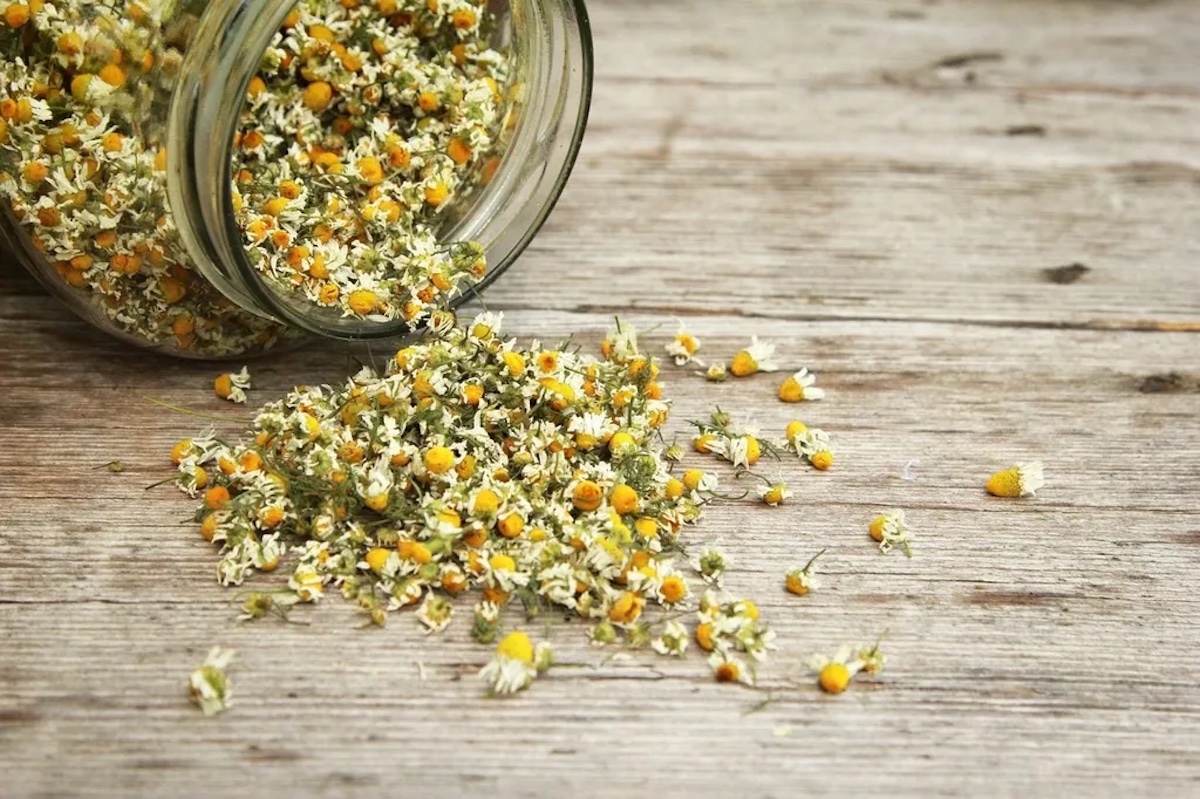These 16 Essential Oils Can Help with Inflammation

Essential Oils: Some essential oils—like ginger, eucalyptus, and lavender—can help calm inflammation in the body by targeting chemicals that trigger swelling and pain. Used the right way, they may ease symptoms like sore muscles, joint pain, or irritated airways.
Important Reminder About Essential Oil Use
While essential oils can provide some wellness uses, they should not be used to replace treatments advised by a healthcare provider. Using these oils without proper care and knowledge can cause new problems.
1. Ginger
Ginger has been used for centuries to ease chronic pain and reduce inflammation. Its anti-inflammatory effects are largely credited to gingerols—the active compounds that give ginger its potent properties.
Animal studies have shown that ginger can significantly reduce joint inflammation, particularly in cases of rheumatoid arthritis. In one study, ginger injections helped lower swelling and slowed the progression of chronic inflammation. Other research found that ginger was just as effective as nonsteroidal anti-inflammatory drugs (NSAIDs) in relieving menstrual cramps.
Essential Oils, These findings support ginger essential oil’s potential as a natural option for managing inflammation and discomfort.
2. Lavender
Lavender has long been used to calm the body and mind, but it may also help reduce inflammation. Research shows that lavender essential oil can block several key pro-inflammatory cytokines—molecules that trigger and sustain inflammation.
In one study, lavender collected during its early bloom showed the strongest anti-inflammatory effects, suggesting that the timing of harvest may influence its potency. These findings support lavender oil’s potential role in soothing inflammation and promoting skin health.
3. Eucalyptus
Eucalyptus essential oil has been used for centuries to help with pain, stuffy noses, and swelling in the body. Its main ingredient, a compound called eucalyptol has been shown in many studies to lower inflammation and ease discomfort.
Researchers have found that eucalyptus oil can calm the body’s reaction to things that cause swelling or irritation. In animal studies, it helped reduce swelling and pain. It’s also one of the active ingredients in common products like chest rubs and muscle creams.
4. Frankincense
Frankincense essential oil has a long history in traditional medicine, where it was used to treat respiratory and digestive issues, and reduce swelling and pain. Modern research now supports some of these traditional uses—particularly its anti-inflammatory effects.
Studies have found that frankincense may help with inflammation linked to conditions like arthritis, asthma, psoriasis, and gingivitis. Researchers believe its active compounds can calm the body’s immune response and reduce swelling in joints and tissues.
Essential Oils, While early results are encouraging, especially for joint pain and chronic inflammation, more human studies are needed to confirm its long-term benefits.
5. Peppermint
Peppermint essential oil is best known for its cooling, soothing effects—but research also supports its anti-inflammatory potential. The oil contains menthol and menthone, compounds that help reduce swelling by calming the immune response.
In one study, menthol and menthone decreased blood flow and lowered the number of leukocytes—white blood cells that drive inflammation at injury sites. This suggests peppermint oil may help reduce redness, swelling, and discomfort in inflamed tissues.
While more studies are needed to confirm its effects in humans, peppermint essential oil shows promise as a natural anti-inflammatory remedy.
6. Rosemary
Rosemary essential oil may help ease inflammation and reduce pain, especially for conditions that involve the nerves. Studies show it can help the body respond more calmly to injury or chronic stress by reducing swelling and supporting nerve health. It’s also been found to enhance the effects of pain relievers and may even protect the body from further damage.
People use rosemary oil not just for its soothing physical effects, but also for its calming benefits—research suggests it may reduce stress and improve mood, which can be helpful when dealing with long-term pain or inflammation.
7. Turmeric
Turmeric essential oil contains turmerone, a natural compound known for its anti-inflammatory effects. Research shows that turmerone can reduce the body’s inflammatory response by targeting inflammatory chemicals that drive swelling and pain.
These properties suggest turmeric oil may support conditions like inflammatory bowel disease (IBD), arthritis, psoriasis, atherosclerosis, and even inflammation linked to viral infections such as COVID-19.
8. Chamomile
Chamomile has long been used in traditional medicine for its calming and healing properties—and now science supports its anti-inflammatory benefits too. Studies show that chamomile essential oil can help calm an overactive immune response by reducing inflammation at the cellular level.
Its natural compounds work to gently regulate the body’s inflammatory processes, which may ease discomfort linked to chronic conditions like arthritis, skin irritation, and digestive issues. Chamomile is often used in teas, creams, and essential oil blends to soothe the skin, ease tension, and support overall wellness.

9. Clove
Clove essential oil is rich in eugenol, a compound known for its strong anti-inflammatory effects. Studies suggest that eugenol may help suppress inflammatory enzymes commonly elevated in conditions like heart disease and joint inflammation.
By targeting these enzymes, clove oil may reduce swelling and support the body’s natural healing processes, making it a useful option for managing inflammation-related symptoms.
10. Thyme
Thyme essential oil is known for its anti-inflammatory and pain-relieving effects, thanks to active compounds like thymol and carvacrol. In one study, thyme extract helped reduce the severity of menstrual cramps, though it was slightly less effective than ibuprofen.
Essential Oils, Thyme also shows promise in oral health. Research suggests it may reduce inflammation and fight infection in the mouth, making it a potential natural remedy for gum irritation and other oral conditions.
11. Basil
Basil essential oil, especially from tulsi (holy basil), has shown promising anti-inflammatory effects. Tulsi is richer in healing compounds than common kitchen basil and has been traditionally used to support respiratory health.
Studies suggest it may help reduce airway inflammation and calm the kind of inflammation linked to fat cells, which is often seen in metabolic conditions like insulin resistance and obesity.
12. Lemongrass
Lemongrass is more than a fragrant herb—it’s a natural source of plant compounds with anti-inflammatory potential. Extracts rich in flavonoids like luteolin have been shown in animal and lab studies to reduce swelling and block inflammatory markers like cytokines and nitric oxide.
While human studies are still needed, these early findings suggest lemongrass may help ease discomfort related to arthritis, headaches, and other inflammatory conditions. It’s commonly used in teas, oils, and topical treatments to support relaxation and overall wellness.
13. Patchouli
Best known for its earthy scent, patchouli also carries surprising health benefits. Research suggests that compounds in patchouli oil—like pachypodol—may help reduce inflammation and ease discomfort linked to conditions like joint pain or skin irritation.
In animal and lab studies, patchouli extracts helped calm swelling and protect tissues by fighting off harmful free radicals. More studies in humans are needed to fully understand how patchouli might support everyday wellness.
14. Bergamot
Bergamot, a citrus fruit often used for its fragrant essential oil, has also shown promising anti-inflammatory effects in early research. Extracts from its juice and peel—rich in natural compounds like flavonoids and linalool—appear to help reduce inflammation at the cellular level.
Studies in lab settings suggest that bergamot can calm the body’s inflammatory response and may protect cells from oxidative stress. These actions are linked to benefits for skin conditions, heart health, and even immune balance. While these findings are exciting, more studies in humans are needed to confirm bergamot’s full potential as a natural anti-inflammatory remedy.
15. Clary Sage
Clary sage essential oil has long been used in herbal traditions, and recent research backs its ability to ease inflammation and support the body’s healing process. In one animal study, wounds treated with clary sage oil healed faster, with less swelling and more tissue regeneration compared to untreated wounds.
The oil’s natural compounds appear to reduce inflammation by calming the body’s immune response and supporting antioxidant defenses. This may help the body repair itself more efficiently—making clary sage a good option for skin healing and inflammation.
16. Sandalwood
Essential Oils, Indian sandalwood oil has been used for hundreds of years to care for skin and treat health problems. Today, research shows it may help reduce inflammation and protect the skin from damage.
In lab tests, sandalwood oil helped defend skin cells from harmful things like cigarette smoke and blue light from screens. These things can cause swelling, redness, and early aging.
The oil also helped lower signs of stress in the skin and reduced a chemical that breaks down collagen (a protein that keeps skin firm and smooth). In some cases, it worked even better than vitamin E.
Experts think sandalwood oil’s benefits come from natural compounds like alpha-santalol, which calm the skin and fight harmful molecules called free radicals.
Also Read:
13 Anti-Aging Fruits to Add to Your Diet




